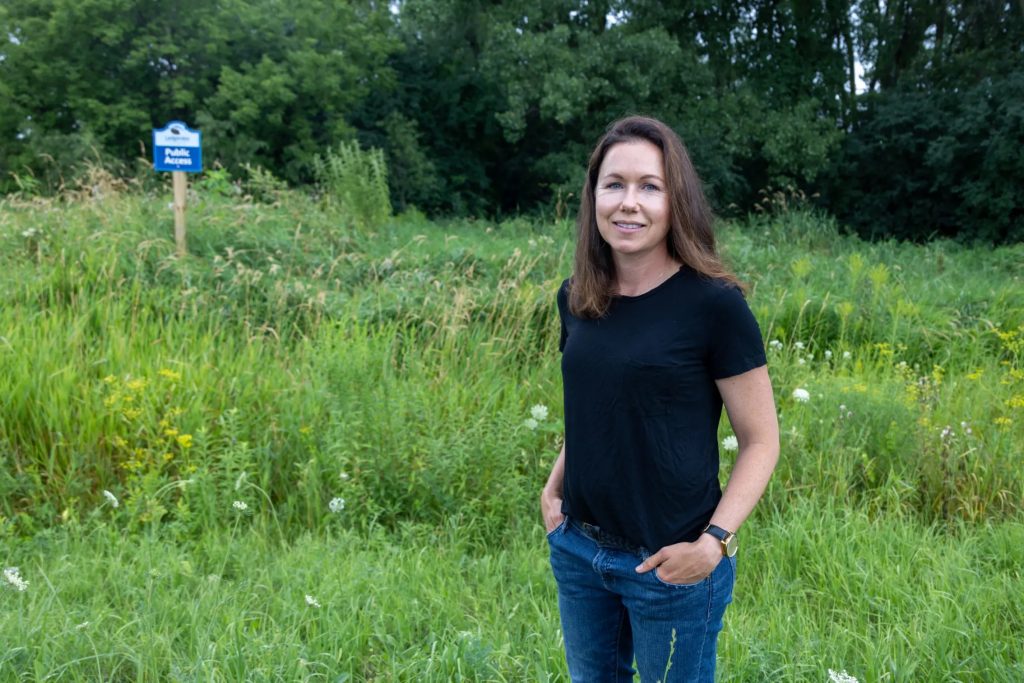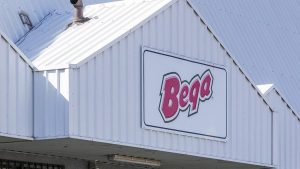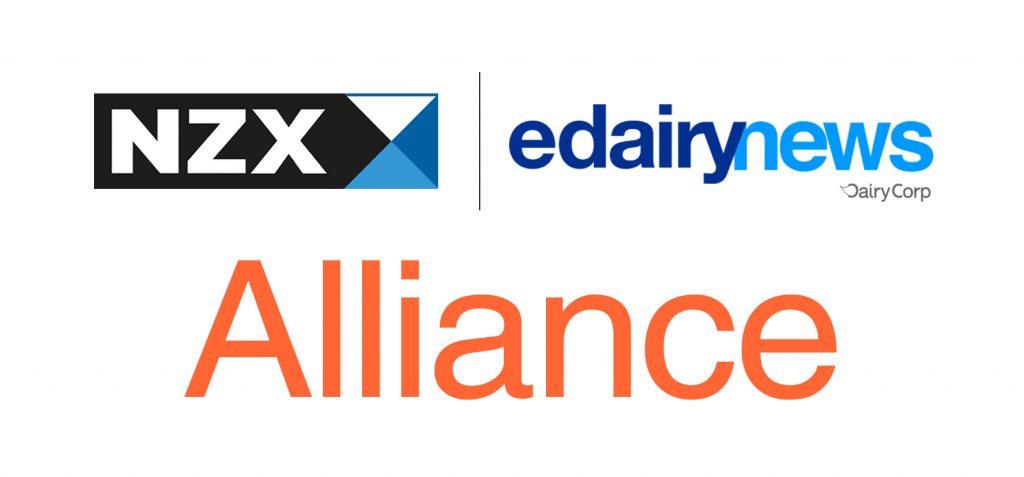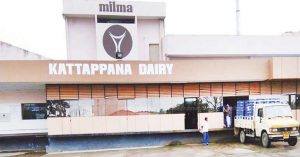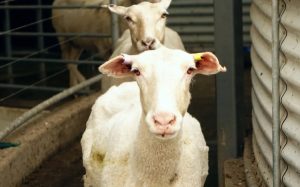The state’s dairy industry is suing towns over denied permits and environmental regulations.
Marenda Porter’s new home in Ledgeview, Wisconsin, seemed like the perfect fit for her family of four children. The growing suburb outside Green Bay was a tight-knit community with nearby land for her kids to explore and space for a large garden.
Then there was a knock on the door.
A few days after moving in, concerned neighbors informed her that Ledgeview Farms, a large dairy farm behind her home, was planning to expand, which included building a manure pit to store millions of gallons of waste next to the subdivision.
Over the next several years, Porter began noticing manure runoff in the creek her kids would play in. Originally from rural South Dakota, she had been around farming her whole life, but this felt different.
“We don’t even want to think about health consequences because it’s out of our control, unless we were to pick up and move away,” she said. “But at this point, it’s just not feasible for us to do that.”
Residents, including Porter, openly complained about the farm’s operations and the risk associated with a waste pit near their homes. The town denied the farm’s permit application, saying the expansion would violate a newly updated town ordinance.
In late 2023, the farm responded with a lawsuit against the town.
The legal fight between the large dairy farm and the city government is an example of a growing trend in the nation’s Dairyland. As Wisconsin dairy farms get bigger and municipal and state governments impose new restrictions in response, the dairy industry is increasingly fighting back through the court system.
Many of the dairy farms that have sued municipal and state governments are represented by Michael Best & Friedrich LLP, a national law firm that helped craft state statutes to weaken local control over agriculture.
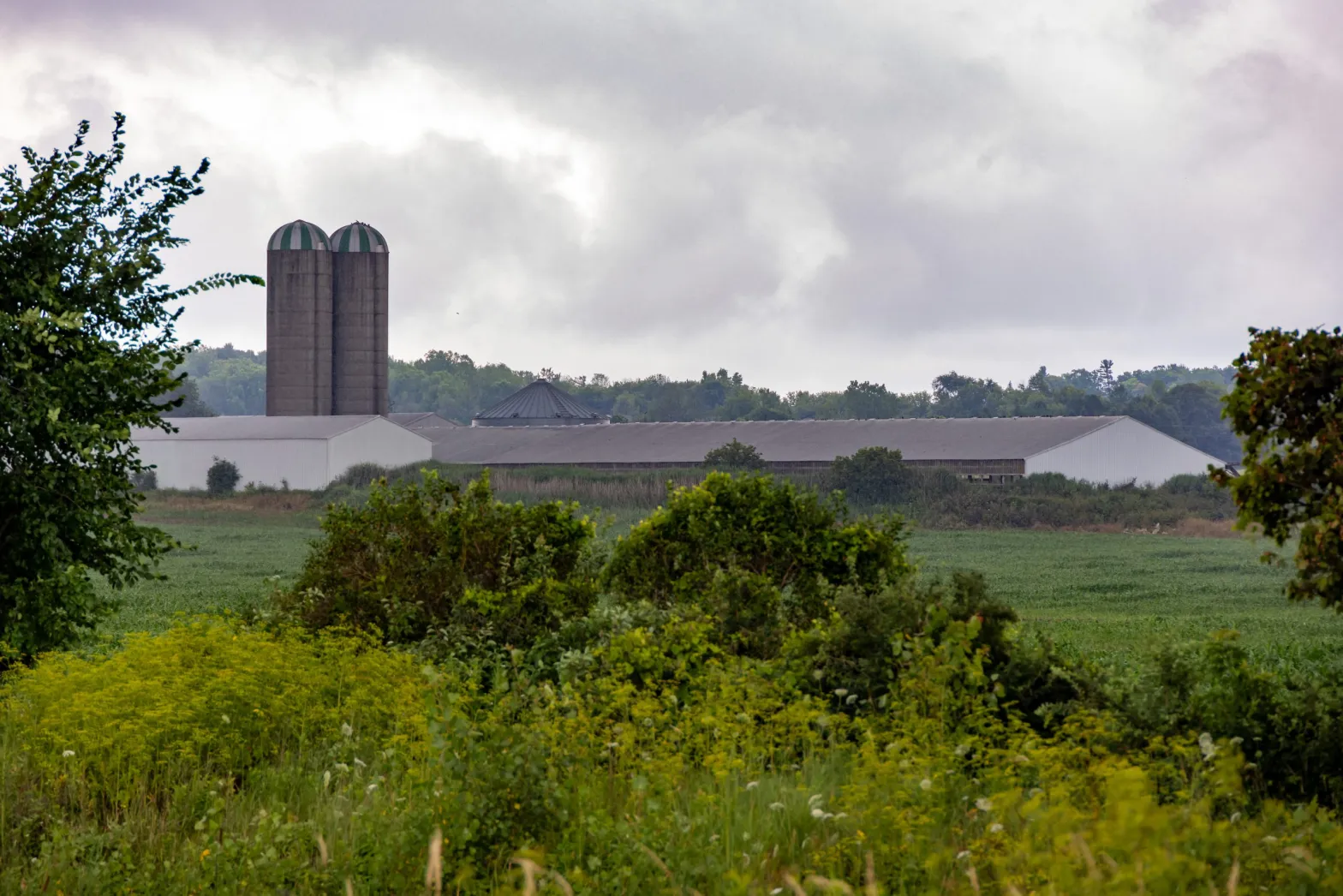
Since 2018, large Wisconsin dairy farms have filed 13 lawsuits against municipal and state governments, according to an Investigate Midwest analysis of court records and state permitting data for concentrated animal feeding operations, or CAFOs. Dairy farms with roughly 700 or more milking cows are considered CAFOs, requiring a Wisconsin Pollutant Discharge Elimination System, or WPDES, permit.
“The trend does seem to be moving up, particularly for CAFOs and state agency-based litigation. The local municipality-based litigation tends to rise, as well,” said Adam Voskuil, a staff attorney at the environmental law firm Midwest Environmental Advocates. He does not represent either party in the Ledgeview Farms lawsuit.
“As data comes out that shows the effects of (CAFOs on) groundwater contamination, local governments and the state government start responding with the authority that’s been given,” Voskuil added.
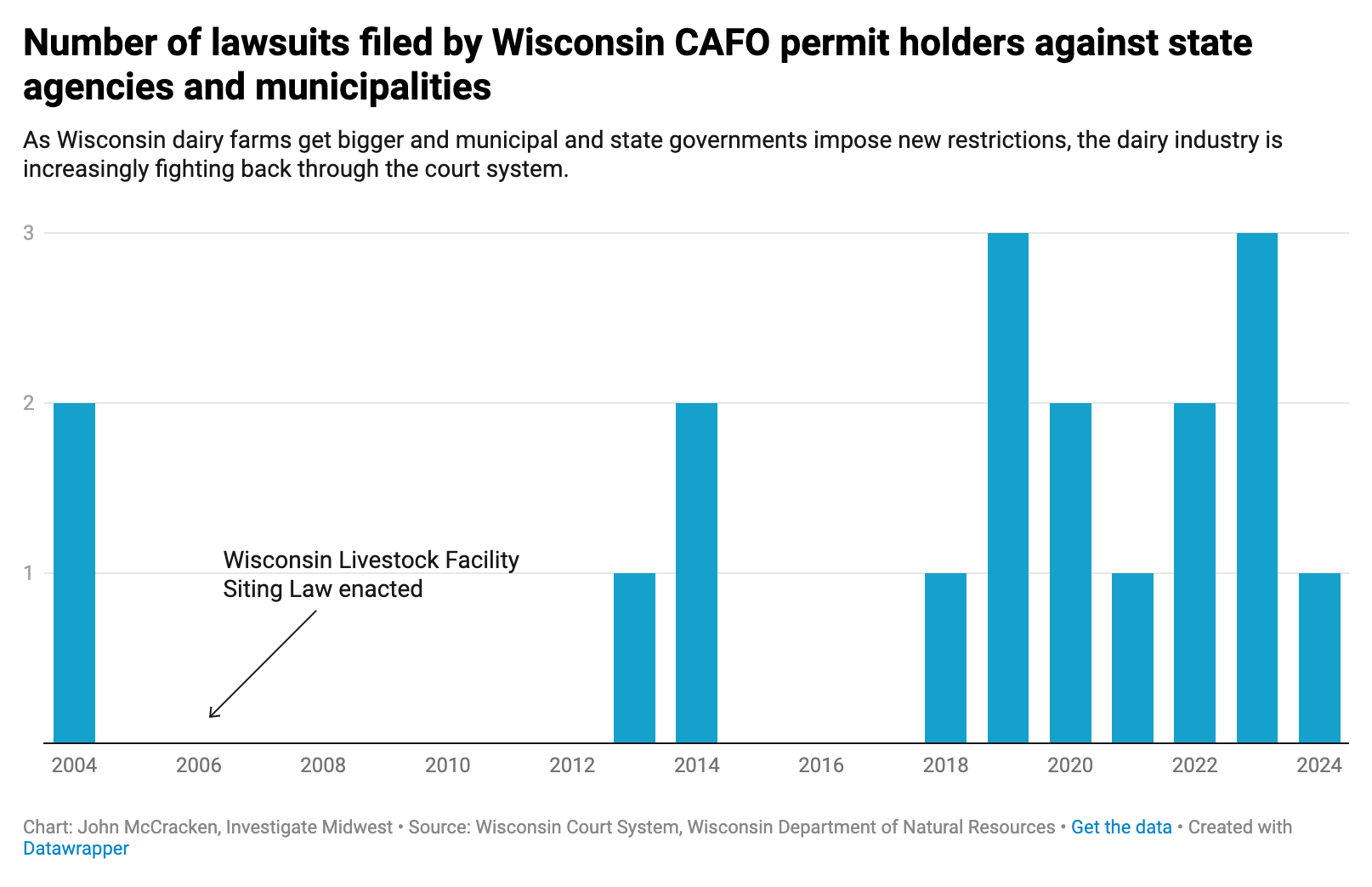
While the overall number of Wisconsin dairy farms has declined by nearly two-thirds over the past 20 years, the farms that remain have grown bigger.
The state’s dairy industry is estimated to be worth nearly $46 billion, according to University of Wisconsin-Madison research. Most of Wisconsin’s dairy is used to make cheese.
“Demand for dairy products overall, both United States domestic and export demand, continues to grow,” said Charles Nicholson, an agriculture and economics professor at UW-Madison.
Larger farms mean more cattle. More cattle means more waste and runoff problems for nearby communities, especially in areas of population growth. Livestock waste runoff has been linked to various public health problems such as cancers, infant deaths and miscarriages.
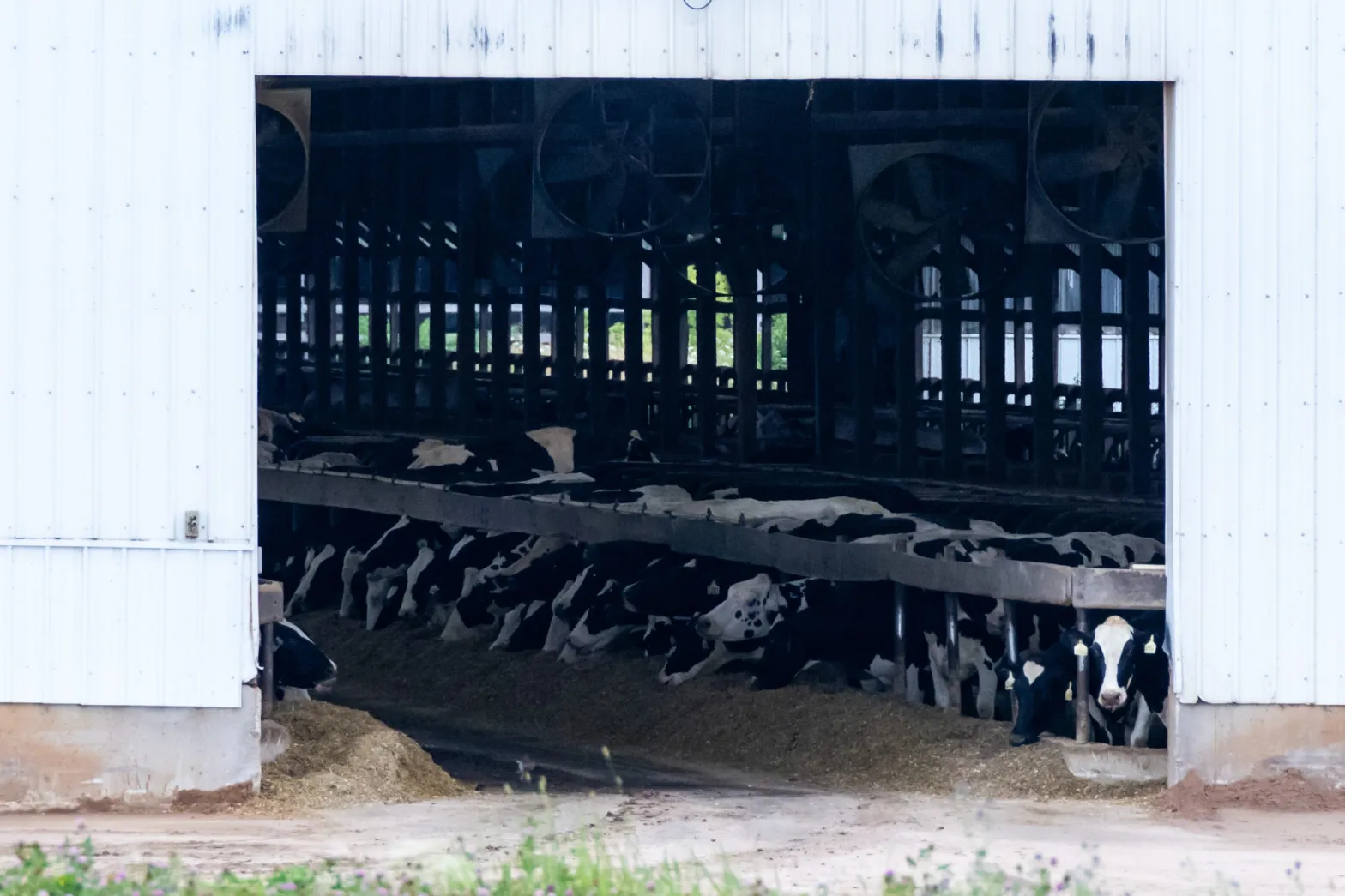
In its lawsuit over the town’s permit rejection, Ledgeview Farms claimed it had a right to farm and use its facilities as it was before the town’s ordinance changed. Farm owner Jason Pansier declined an interview with Investigate Midwest, as did his attorney.
Ledgeview attorney Larry Konopacki said the town has a responsibility to protect various — and sometimes competing — interests, such as the growth of a large dairy farm and the growth of a residential area.
“Frankly we have very limited tools to use because, in Wisconsin, we’re a very pro ag state,” he said.
Years of legal battles
In 2017, Ledgeview Farms applied to build a new manure pit that would hold upwards of 13 million gallons of waste, a move that would allow the farm to increase its herd size.
Porter and her neighbors were worried about the impact of increased waste near homes and bodies of water. Even then-Green Bay Packers head coach Mike McCarthy, who lived in the area, expressed concern.
The once-predominantly rural town of Ledgeview had become a hotbed for suburban cul-de-sacs and housing developments. The town’s population increased by a third from 2010 to 2020, topping 8,800, according to U.S. Census data.
The five-county region also had the largest share of CAFOs in the state. The buffer between residential neighborhoods and industrial dairy farms was shrinking.
The town board denied Ledgeview Farm’s permit application to build a new manure pit.
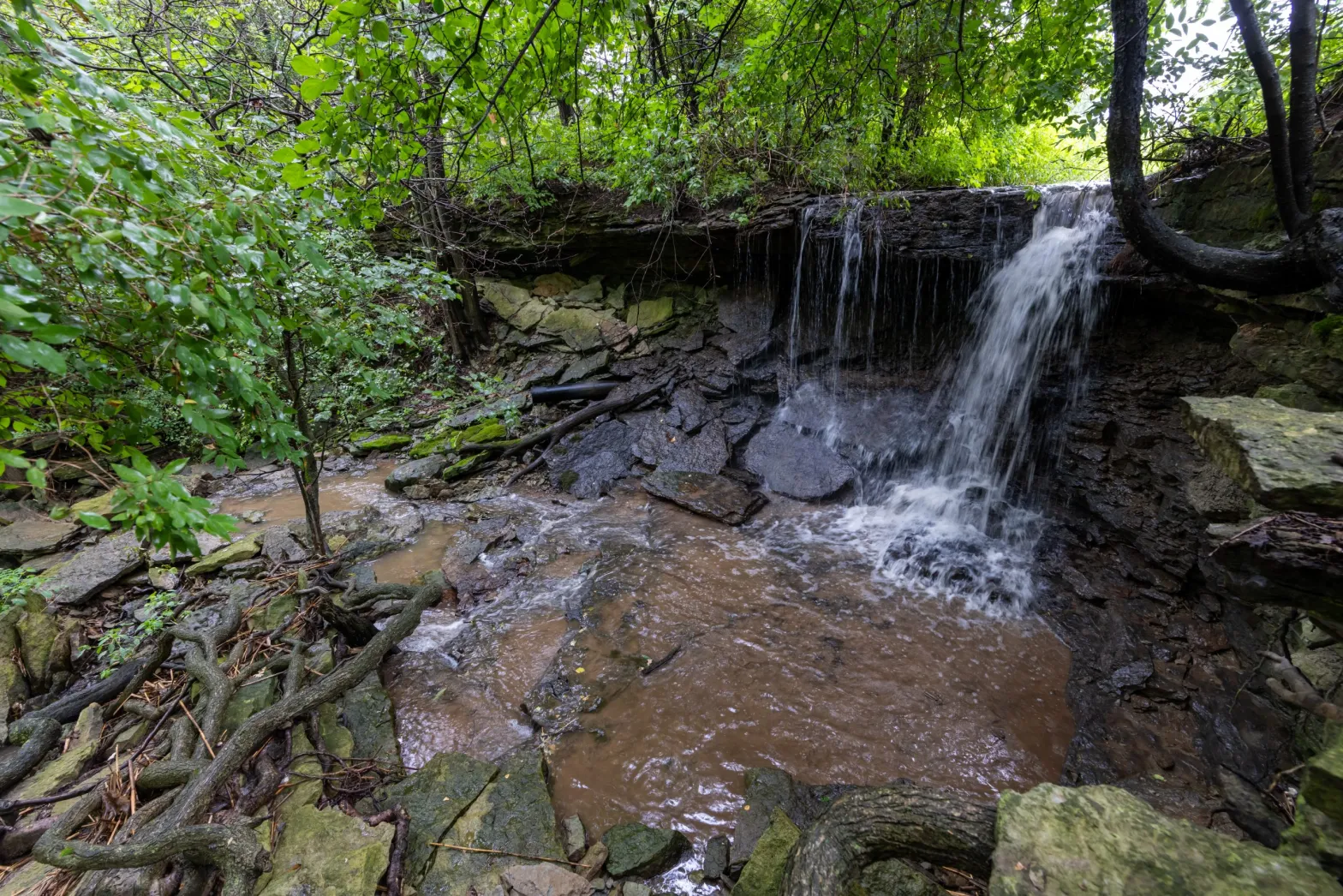
The state’s Livestock Siting Review Board, circuit court and court of appeals all sided with the town’s decision to deny the permit. The farm appealed to the state Supreme Court, which declined to hear the case.
In 2021, the farm opened a manure pit in the neighboring town of Glenmore, where it now transports some of its Ledgeview waste. Glenmore zoning administrator Ben Schauer said the pit is in operation and can hold upwards of 20 million gallons of manure.
In addition to denying the permit, the town of Ledgeview ordered the farm to maintain its herd at or below 1,000 animal units and to bring the farm operations into full compliance with state and federal law.
Herd size has been a contentious issue for the farm.
During the permitting process for the manure pit application, Ledgeview Farms declined to provide the town with its herd numbers. In response, the town received a warrant for town inspectors, accompanied by the county sheriff’s office, to carry out an inspection.
But the farm’s owners refused to let town officials take a headcount, according to a town memo obtained by Investigate Midwest. While refusal to comply with the warrant could have led to an arrest, town officials eventually asked the sheriff to leave without making any arrests.
In a recent wastewater permit application to the state, Ledgeview Farms said it had just under 2,000 cattle with plans to have more than 3,000 within five years, according to records from the Wisconsin Department of Natural Resources.
The Wisconsin DNR declined to comment on legal cases between dairy farms and local municipalities.
In its most recent lawsuit, Ledgeview Farms argued they should be allowed to operate as they currently do because their large, free-stall barn was built before the town’s ordinance reducing the cap on herd sizes.
“Prior to 2017, the Pansiers had in place facilities that allowed them (to have) — and in fact did have — several thousand cows in their facilities,” said Eric McLeod, attorney for Ledgeview Farms, referring to the farm owners during a July 12, 2024, oral argument in Brown County court.
Town attorneys argued in July that the judge should throw out the lawsuit on the basis that they were operating illegally prior to the 2017 ordinance.
“The record demonstrates that this is a bad-acting farm,” said Ledgeview attorney Matthew Fischer. “They’ve violated basically every environmental state and federal rule. It’s not surprising that the town wants to stop these violations.”
Neighbors of the farm have seen these violations firsthand.
Porter said she’s witnessed overspreading of manure on nearby fields and found runoff from the farm in her yard. She said neighbors have moved out because the waste and odors were overwhelming.
“We almost never open the windows because it stinks so bad,” she said.
Litigating for the industry
At the July oral argument hearing, a dozen members of the Pansier family packed the rickety, wooden benches of the small Brown County courtroom. A handful of Ledgeview officials sat on the other side of the room while Ledgeview Farms attorney McLeod said clashes between large farms and suburban residents had become common practice.
“I’ve handled many types of these disputes concerning large dairy farms and they always arise in the context of when folks build residential developments adjacent to existing dairy farms,” he said. “What happens is the folks who built the homes in rural areas often find that they don’t like living next to a farming operation.”
Litigating these disputes has become a major business for Wisconsin attorneys like McLeod.
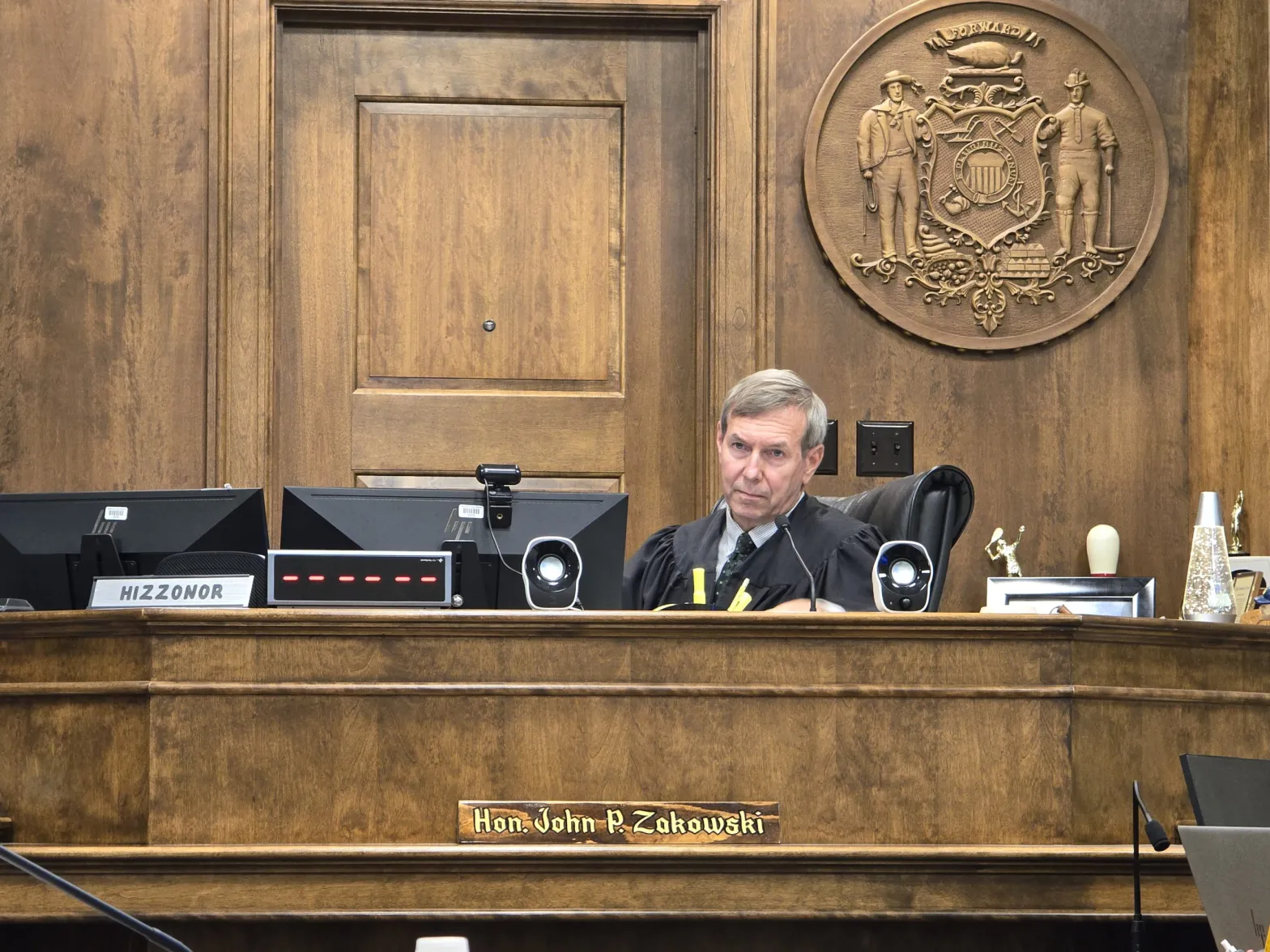
In a review of lawsuits filed by CAFO permit holders, Investigate Midwest found the majority have been litigated by the national law firm Michael Best & Friedrich LLP.
Michael Best has five offices across the state and is a member of the Dairy Business Association, American Dairy Alliance and the Wisconsin’s Food and Beverage Business Network.
Their attorneys helped create the Wisconsin Livestock Facility Siting Law, which CAFO critics said created industry-friendly standards and prevented local governments from explicitly preventing the expansion of agriculture facilities.
David Crass, who has worked for Michael Best for over three decades, drafted the Wisconsin Livestock Facility Siting Law, which passed in 2004. Crass was working for the Dairy Business Association, a registered lobbying organization of dairy producers and farmers, which lobbied for the creation of the law.
The passage of the Wisconsin Livestock Facility Siting Law, which went into effect in 2006, “marked a major turning point for the state’s dairy industry — and a signature moment for our agricultural practice, which remains highly attuned to our clients’ issues and needs in the legal, regulatory, and social climates where they operate,” according to the law firm’s website.
Crass and the Michael Best law office did not respond to a request for comment.

Michael Best attorneys have also routinely defended farm operators against fines for violating city permits and local pollution ordinances, Investigate Midwest found in its review of lawsuits.
McLeod, the attorney for Ledgeview Farms, formerly worked for Michael Best where he represented a large dairy farm in a 2004 legal battle against a rural town in one of the first instances of the law being used in court.
McLeod, who currently works for Husch and Blackwell, declined an interview request with Investigate Midwest.
On the other side of the state, more business groups have become invested in similar legal battles.
Wisconsin Manufacturers & Commerce, the state’s largest business association, recently sued the town of Eureka over an operating ordinance that restricted the operation of CAFOs.
“If we allow local governments like the town of Eureka to violate the law, we’re going to endanger and potentially kill a vital aspect of our state’s economy,” said Scott Manley, WMC executive vice president of government relations, in an announcement of the lawsuit. “These farms already have a mountain of regulations.”
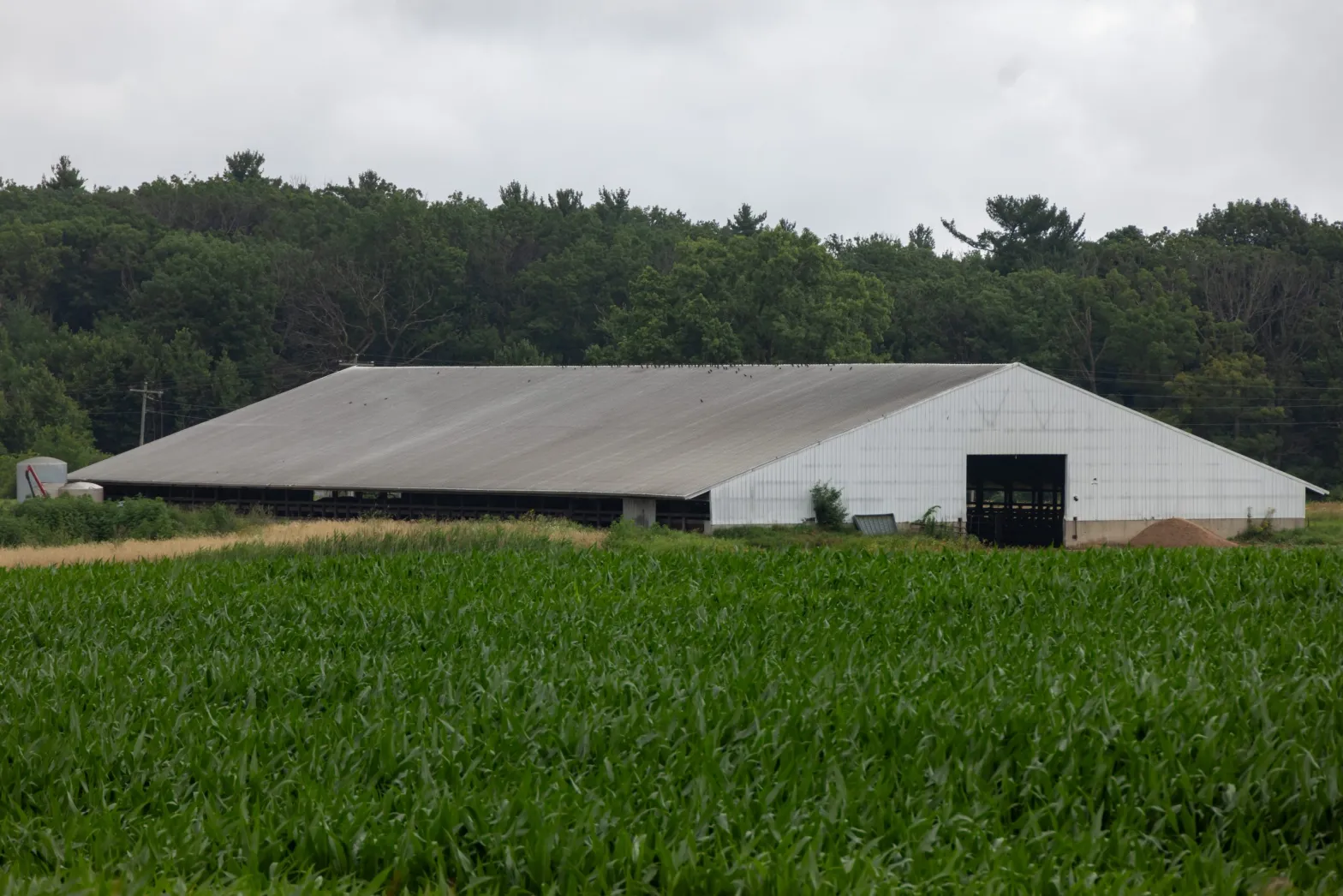
WMC represented dairy industry groups in a lawsuit against the state’s DNR last year, where Venture Dairy Cooperative and the Wisconsin Dairy Alliance argued that the department overreaches by requiring CAFOs to have wastewater permits. The case was dismissed. The groups did not respond to a request for comment.
This wasn’t the first time industry groups attempted to deregulate how the state runs its wastewater permitting for CAFOs. In 2017, the Dairy Business Association sued the DNR, claiming the department’s change to runoff management was not practical or science-based for Wisconsin farmers. The association settled with the agency that same year and was represented by Michael Best attorneys in the lawsuit.
The Dairy Business Association declined an interview with Investigate Midwest.
Matthew Sheets, a policy organizer for the Land Stewardship Project, a Minnesota-based sustainable agriculture nonprofit, said municipalities often want to enact controls over CAFOs that cause health or environmental concerns in their community, but the fear of lawsuits and legal battles creates a chilling effect.
“It’s a reinforcement of the idea that if you are large enough and if you have enough money to bring a lawsuit against a municipality and you have more money than they do, they’re going to not want to step in your way,” he said.
You can now read the most important #news on #eDairyNews #Whatsapp channels!!!
🇺🇸 eDairy News INGLÊS: https://whatsapp.com/channel/0029VaKsjzGDTkJyIN6hcP1K

